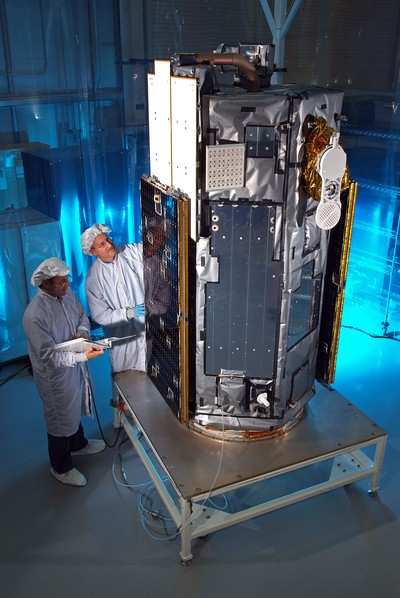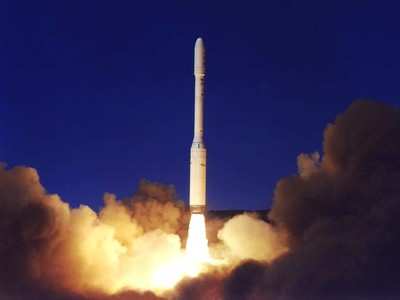Wed, Nov 12, 2008
Satellite To Provide Atmospheric Carbon Dioxide Data
Orbital Sciences Corporation announced this week it has shipped
the Orbiting Carbon Observatory (OCO) satellite to its launch site
at Vandenberg Air Force Base (VAFB), California.

On Saturday, November 8, the OCO satellite departed from the
company’s Dulles, VA facilities in a specialized shipping
container after completing its design, development, manufacturing
and testing process. The spacecraft is due to arrive at VAFB on
Tuesday, November 11 for integration and full system testing with
Orbital's Taurus rocket that will launch the OCO satellite into
low-Earth orbit (LEO) in early 2009.
Orbital built the OCO satellite for the National Aeronautics and
Space Administration (NASA). The OCO project is managed by the Jet
Propulsion Laboratory in Pasadena, California under the direction
of the project's Principal Investigator Dr. David Crisp.
"The cross-country shipment of the OCO satellite from Virginia
to California is the first leg of its journey into space, where it
will collect and provide vital data to scientists studying the
Earth's carbon cycle, a key element in understanding global climate
change," said William Barnhart, Orbital's OCO satellite Program
Manager. "The manufacturing and testing process of the OCO
satellite was completed without any major technical hurdles or
schedule delays. We are on track to carry out the launch of OCO
aboard our Taurus rocket in the early weeks of 2009."
After its launch into orbit, the OCO satellite will collect and
disseminate precise global measurements of carbon dioxide (CO2)
concentrations in the Earth's atmosphere to scientists studying
global climate change. Dr. Crisp and his scientific team will
analyze OCO data to improve our understanding of the natural
processes and human activities that regulate the abundance and
distribution of this important greenhouse gas.

Orbital says this improved understanding will enable more
reliable forecasts of future changes in the concentration of CO2 in
the atmosphere and the effect that these changes may have on the
Earth's climate.
More News
Aero Linx: JAARS Nearly 1.5 billion people, using more than 5,500 languages, do not have a full Bible in their first language. Many of these people live in the most remote parts of>[...]
'Airplane Bounced Twice On The Grass Runway, Resulting In The Nose Wheel Separating From The Airplane...' Analysis: The pilot reported, “upon touchdown, the plane jumped back>[...]
"Burt is best known to the public for his historic designs of SpaceShipOne, Voyager, and GlobalFlyer, but for EAA members and aviation aficionados, his unique concepts began more t>[...]
"Polaris Dawn, the first of the program’s three human spaceflight missions, is targeted to launch to orbit no earlier than summer 2024. During the five-day mission, the crew >[...]
There Are SO Many Ways To Get YOUR Aero-News! It’s been a while since we have reminded everyone about all the ways we offer your daily dose of aviation news on-the-go...so he>[...]
 ANN's Daily Aero-Linx (05.04.24)
ANN's Daily Aero-Linx (05.04.24) NTSB Final Report: Quest Aircraft Co Inc Kodiak 100
NTSB Final Report: Quest Aircraft Co Inc Kodiak 100 Aero-News: Quote of the Day (05.04.24)
Aero-News: Quote of the Day (05.04.24) Aero-News: Quote of the Day (05.05.24)
Aero-News: Quote of the Day (05.05.24) Read/Watch/Listen... ANN Does It All
Read/Watch/Listen... ANN Does It All




